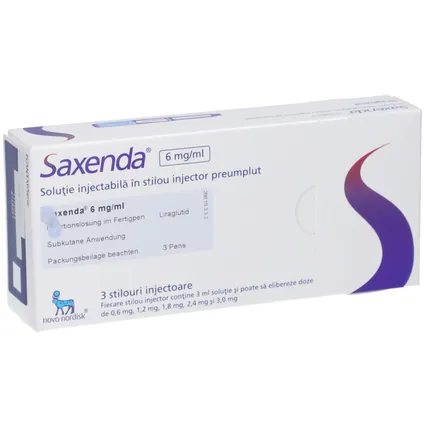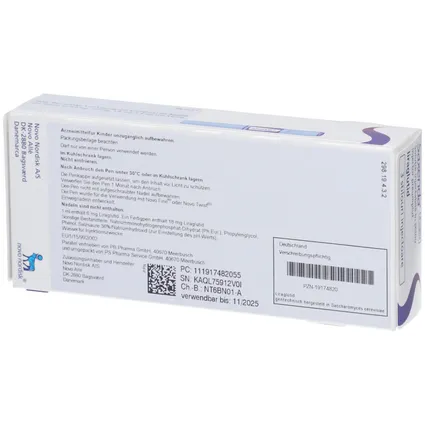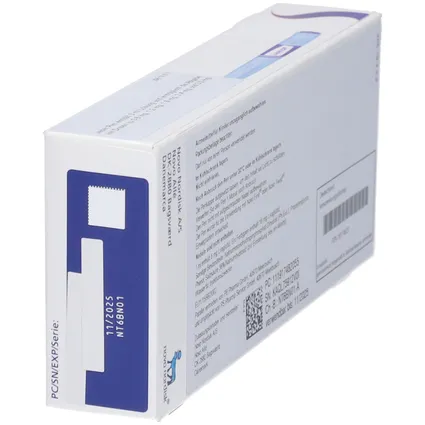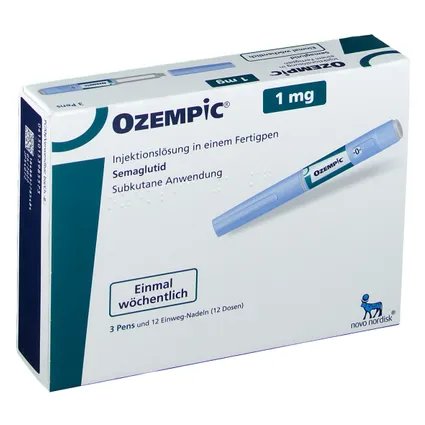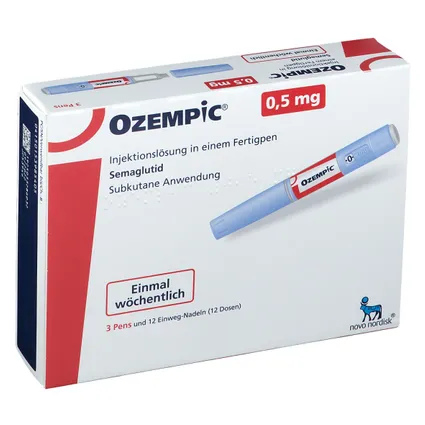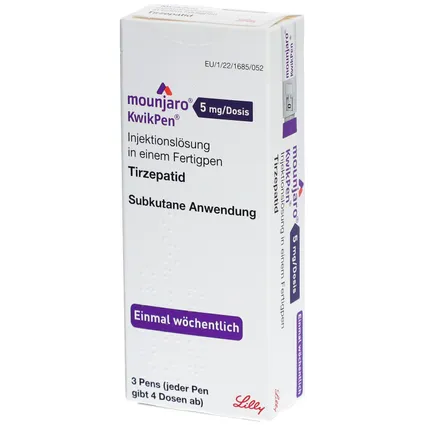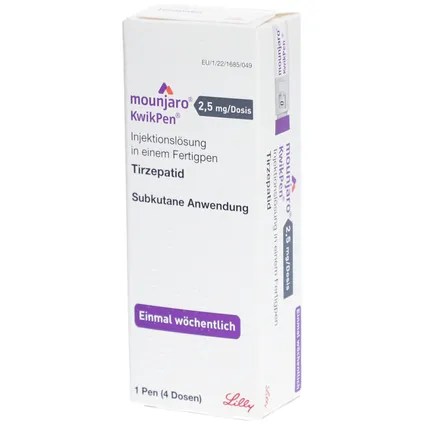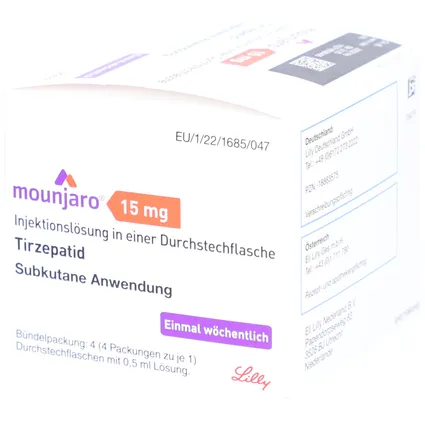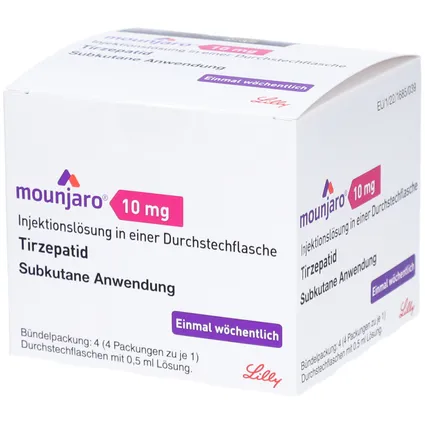Saxenda® 6 mg/mL Injection Solution in Pre-filled Pen
€ 279.99
Buy SAXENDA 6 mg/ml
Pack size: 3×3 ml
Active ingredients
- 18 mg liraglutide (S.cerevisiae)
Auxiliaries
- Water for injections
- Sodium hydroxide for pH adjustment
- Hydrochloric acid for pH adjustment
- Disodium hydrogen phosphate 2 water
- phenol
- Propylene glycol
Product Meta
Category: Saxenda
Tags: abnehmspritze ozempic, abnehmspritze ozempic kaufen, alternative zu ozempic, mounjaro vs ozempic, ozempic 0 25, ozempic 0 25 kaufen, ozempic 0 25 mg preis, ozempic 0 25 mg preis 3 stück, ozempic 0 25 mg wo verfügbar, ozempic 0 5, ozempic 0 5 lieferbar, ozempic 0 5 mg, ozempic 0 5 mg 3 stück, ozempic 0 5 mg 3 stück lieferbar, ozempic 0 5 mg lieferbar, ozempic 0 5 mg preis, ozempic 0 5 mg preis 3 stück, ozempic 0 5 mg wo verfügbar, ozempic 0.5mg, ozempic 1 mg, ozempic 1 mg 3 stück, ozempic 1 mg 3 stück preis, ozempic 1 mg kaufen, ozempic 1 mg lieferbar, ozempic 1 mg nebenwirkungen, ozempic 1 mg preis, ozempic 1mg, ozempic 1mg kaufen, ozempic 2 mg deutschland, ozempic abnehmen, ozempic abnehmen erfahrungen, ozempic abnehmspritze, ozempic alternatives, ozempic apotheke verfügbarkeit, ozempic babys, ozempic celebrities, ozempic celebrity before and after, ozempic cena, ozempic deutschland, ozempic drink, ozempic drink erfahrungen, ozempic ersatz, ozempic germany, ozempic gesicht, ozempic haarausfall, ozempic in der türkei kaufen, ozempic kaufen, ozempic kaufen deutschland, ozempic kaufen ebay, ozempic kaufen ohne rezept, ozempic kaufen ohne rezept holland, ozempic kaufen ohne rezept schweiz, ozempic krebserregend, ozempic lieferbar, ozempic nebenwirkungen blase, ozempic nebenwirkungen blutdruck, ozempic nebenwirkungen psyche, ozempic oder wegovy, ozempic ohne rezept kaufen, ozempic online, ozempic online bestellen, ozempic online kaufen, ozempic pen nicht leer, ozempic preis, ozempic preis 1 mg, ozempic preis apotheke, ozempic preis deutschland, ozempic preis ohne rezept, ozempic preis privatrezept, ozempic preis türkei, ozempic preis:1 mg, ozempic preise, ozempic price, ozempic privatrezept, ozempic spritze kaufen, ozempic spritze preis, ozempic spritze zum abnehmen, ozempic tabletten, ozempic tabletten preis, ozempic tee, ozempic türkei, ozempic türkei apotheke, ozempic türkiye fiyat, ozempic vs wegovy, ozempic wegovy, ozempic zum abnehmen, ozempic zum abnehmen erfahrungen, south park ozempic, wegovy oder ozempic, wegovy vs ozempic, wo ist ozempic lieferbar, zaubertrank ozempic
Product Description
SAXENDA 6 mg/ml Injektionslsg.i.e.Fertigpen
indication:
- The preparation is a weight loss medicine that contains the active substance liraglutide. It is like a naturally occurring hormone, the so-called glucagon-like peptide-1 (GLP-1), which is released from the intestine after a meal. The drug acts on receptors in the brain that regulate appetite, thus triggering an increased feeling of satiety and weakened feeling of hunger. This can help you eat less and reduce your body weight.
- What is it used for?
- The preparation is used in addition to a diet and physical activity for weight loss in adults aged 18 and over, with
- a BMI of 30 kg / m2nd or higher (obesity) or
- a BMI of 27 kg / m2nd and less than 30 kg / m2nd (overweight) and weight-related health problems (such as diabetes, high blood pressure, increased blood lipid levels or breathing problems during sleep, the „ obstructive sleep apnea “).
- The BMI (body mass index) is a measure of your weight in terms of your size.
- You should only continue treatment if you have lost at least 5% of your original body weight after using the 3.0 mg / day dose for 12 weeks. Talk to your doctor before continuing treatment.
- The medicine can be used as a supplement to a healthy diet and increased physical activity in adolescents aged 12 years or older at:
- Obesity (according to medical diagnosis).
- a body weight over 60 kg.
- You should only continue to take it if you have lost at least 4% of your BMI after 12 weeks with the dose of 3.0 mg / day or the maximum tolerated dose. Talk to your doctor before continuing treatment.
- The preparation is used in addition to a diet and physical activity for weight loss in adults aged 18 and over, with
- Diet and physical activity
- Your doctor will prescribe a diet and training program for you. Keep this program during use.
dosage:
- Always use this medicine exactly after consultation with your doctor. Ask your doctor, pharmacist or healthcare professional if you are not sure.
- Your doctor will prescribe a diet and training program for you. Keep this program while using Liraglutid.
- What amount of drug should be injected?
- adults
- Your treatment begins with a low dose, which is then gradually increased in the first five weeks of treatment.
- If you are using the medicine for the first time, the starting dose is 0.6 mg once a day, for at least one week.
- Your doctor will tell you to gradually increase your dose by a further 0.6 mg each week until you reach the recommended dose of 3.0 mg once a day.
- Your doctor will tell you exactly how much Liraglutid you should use every week. As a rule, you are advised to use the following table.
- Week 1
- 0.6 mg once a day
- Week 2
- 1.2 mg once a day
- Week 3
- 1.8 mg once a day
- Week 4
- 2.4 mg once a day
- from week 5
- 3.0 mg once a day
- Once you are in the 5th. Treatment week at the recommended dose of 3.0 mg, keep this dose until the end of your treatment. Do not increase the dose further.
- Your doctor will assess your treatment at regular intervals.
- Your treatment begins with a low dose, which is then gradually increased in the first five weeks of treatment.
- Young people (> / = 12 years)
- For adolescents aged 12 to under 18 years, a dose increase should be made according to the table for adults (see table above for adults). The dose should be increased to 3.0 mg (conservation dose) or until the maximum tolerated dose is reached. Daily doses higher than 3.0 mg are not recommended.
- adults
- Diabetic
- Tell your doctor if you have diabetes. In this case, your doctor can adjust the dose of your diabetes medication to avoid hypoglycaemia.
- Do not confuse the preparation with other medicines that you inject (e.g. B. Insuline).
- Do not use it in combination with other medicines that contain GLP-1 receptor agonists (such as exenatide or lixisenatide).
- Tell your doctor if you have diabetes. In this case, your doctor can adjust the dose of your diabetes medication to avoid hypoglycaemia.
- If you use more than you should
- If you have used more than you should, tell your doctor immediately or go to a hospital immediately. Take the medicine pack with you. You may need immediate medical treatment. The following effects can occur:
- nausea
- vomiting
- Hypoglycaemia. Warning signs of hypoglycaemia can be found under „ Common side effects”.
- If you have used more than you should, tell your doctor immediately or go to a hospital immediately. Take the medicine pack with you. You may need immediate medical treatment. The following effects can occur:
- If you forget to use it
- If you miss a dose and notice it within 12 hours of usually taking the dose, inject it as soon as you remember.
- However, if more than 12 hours have passed since the scheduled use, skip the missed dose and inject your next dose the following day at the usual time.
- Do not use a double dose or increase the dose the following day to make up for the missed dose.
- If you cancel the application
- Do not stop using it without consulting your doctor.
- If you have any further questions about the use of this medicine, contact your doctor, pharmacist or healthcare professional.
way:
- How and when is the preparation to be used?
- Before using the pen for the first time, your doctor or health care professional will explain how to use the pen correctly.
- You can use the preparation at any time of the day, with or without food and beverages.
- Preferably use the pen at the same time of day every day – choose the most suitable time of the day for you.
- Where is the medicine injected?
- Liraglutide is injected under the skin (subcutaneous injection).
- The best places for injection are the front of your abdomen, the front of your thighs or your upper arm.
- Do not inject the medicine into a vein or muscle.
side effects:
- Like all medicines, this medicine can have side effects, but not everybody gets them.
- Serious side effects
- Severe allergic reactions (anaphylaxis) have been rarely reported in patients using the drug. However, if you have symptoms such as. B. If you experience breathing, swelling of the neck and face and accelerated heartbeat, you should see your doctor immediately.
- Cases of pancreatitis (pancreatitis) have been reported occasionally in patients using the medicine. Pancreatitis is a serious, potentially life-threatening condition.
- Stop treatment and contact a doctor immediately if you notice any of the following serious side effects:
- Severe and persistent abdominal pain (upper abdomen) that can radiate into your back, as well as nausea and vomiting, as this can be a sign of an inflamed pancreas (pancreatitis).
- Other side effects
- Very common: can affect more than 1 in 10 people
- Nausea, vomiting, diarrhea, constipation, headache – these usually go away after a few days or weeks.
- Common: can affect up to 1 in 10 people
- Gastrointestinal complaints such as: indigestion (dyspepsia), inflammation of the stomach (gastritis), stomach pain, abdominal discomfort, heartburn, feeling of fullness, flatulence (flatulence), belching and dry mouth
- Feeling weak or tired
- Changed taste sensations
- dizziness
- Sleep disorders. Mainly occurs during the first 3 months of treatment.
- Gallstones
- Injection site reactions (such as. B. bruising, pain, skin irritation, itching and rash)
- Low blood sugar (low blood sugar / hypoglycemia). The following warning signs of hypoglycaemia can suddenly appear: cold sweat, cool pale skin, headache, fast heartbeat, nausea, severe hunger, vision problems, tiredness, weakness, nervousness, anxiety, confusion, Difficulty concentrating and trembling (tremor). Your doctor will tell you how to treat hypoglycaemia and what to do if you notice these warning signs.
- Increase in pancreatic enzymes such as lipase and amylase.
- Uncommon: can affect up to 1 in 100 people
- Loss of fluid (dehydration). It is more likely to occur at the start of treatment and may be due to vomiting, nausea and diarrhea.
- Delay in gastric emptying
- Gallbladder inflammation
- Allergic reactions, such as. B. rash
- General malaise
- Increased pulse.
- Rare: can affect up to 1 in 1,000 people
- Impaired kidney function
- Acute kidney failure. Signs can be a decrease in urine volume, metallic taste in the mouth and rapid appearance of bruises.
- Very common: can affect more than 1 in 10 people
- If you notice any side effects, contact your doctor, pharmacist or healthcare professional. This also applies to side effects that are not specified.
interactions:
- Use with other medicines
- Tell your doctor, pharmacist, or healthcare professional if you are taking / using other medicines, have recently taken / used other medicines, or intend to take / use other medicines.
- Inform your doctor, pharmacist or healthcare professional especially if:
- You are taking medicines to treat diabetes that belong to the so-called sulfonylureas (e.g. B. glimepiride or glibenclamide) or if you use insulin – they can lead to hypoglycaemia when used at the same time. In this case, your doctor can adjust the dose of your diabetes medicine to avoid hypoglycaemia. If you adjust your insulin dose, your doctor may recommend that you check your blood sugar more frequently.
- You are taking warfarin or other anticoagulant medicines (anticoagulants). A more frequent examination of your blood to determine the coagulation ability may be necessary.
Contraindications:
- The medicine should not be used,
- if you are allergic to liraglutide or any of the other ingredients in this medicine.
Pregnancy and lactation:
- pregnancy
- Do not use the medicine if you are pregnant, or if you suspect you are pregnant or intend to become pregnant as it is not known, whether the preparation can harm your unborn child.
- lactation
- Do not use the medicine during breastfeeding as it is not known whether the preparation is excreted in breast milk.
Patient information:
- Warnings and precautions
- Please talk to your doctor, pharmacist or healthcare professional before using the medicine.
- Use is not recommended if you have severe heart failure.
- There is little experience with this medicine in patients who are 75 years of age and older. It is not recommended if you are 75 years of age or older.
- There is little experience with this medicine in patients with kidney problems. If you have kidney disease or are on dialysis, ask your doctor for advice.
- There is little experience with this medicine in patients with liver problems. Ask your doctor for advice if you have liver disease.
- This medicine is not recommended if you have severe stomach or bowel disease that leads to delayed gastric emptying (so-called gastroparesis) or if you have an inflammatory bowel disease.
- Diabetic
- Do not use the preparation as a substitute for insulin if you have diabetes.
- Inflammation of the pancreas
- Talk to your doctor if you have or have had pancreatic disease.
- Gallbladder inflammation and gallstones
- If you lose a lot of weight, there is a risk of gallstones and thus gallbladder inflammation. Stop using and contact your doctor immediately if you experience severe pain in the upper abdomen, which is usually worst on the right side below the ribs. The pain can also be felt up to your back or right shoulder.
- Disease of the thyroid gland
- If you have thyroid disease, including thyroid nodes and thyroid enlargement, talk to your doctor.
- Heart rate
- If you have palpitations (heavy, consciously felt palpitations) or felt racing heart at rest during treatment, contact your doctor.
- Loss of fluid and dehydration
- After starting treatment, you may lose or dehydrate body fluid. This can be caused by nausea, vomiting and diarrhea. It is important to prevent dehydration by drinking plenty of fluids. If you have any questions or concerns about this, contact your doctor, pharmacist or healthcare professional.
- Children and teenagers
- The safety and efficacy of the drug in children under 12 years of age have not been studied.
- Driving and using machines
- It is unlikely that it will affect your ability to drive and use machines.
- Some patients may experience dizziness when using the medicine, especially in the first 3 months of treatment. If you feel dizzy, be especially careful when driving a vehicle or operating machinery. If you need more information about this, contact your doctor, pharmacist or healthcare professional.

